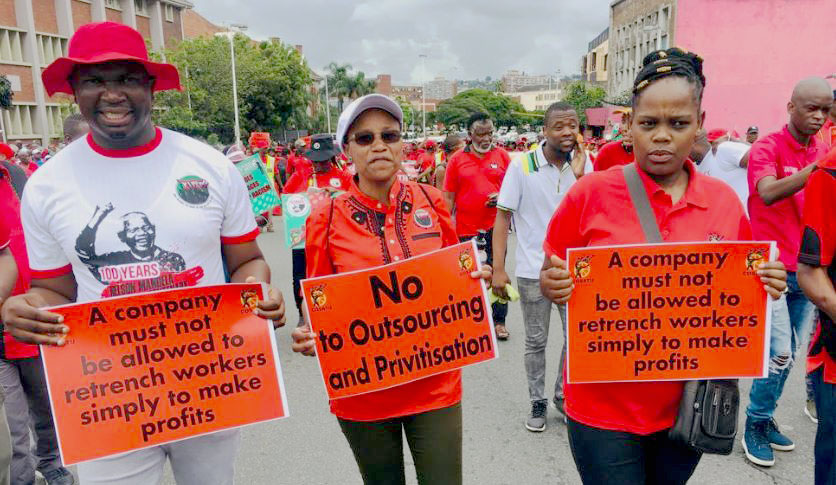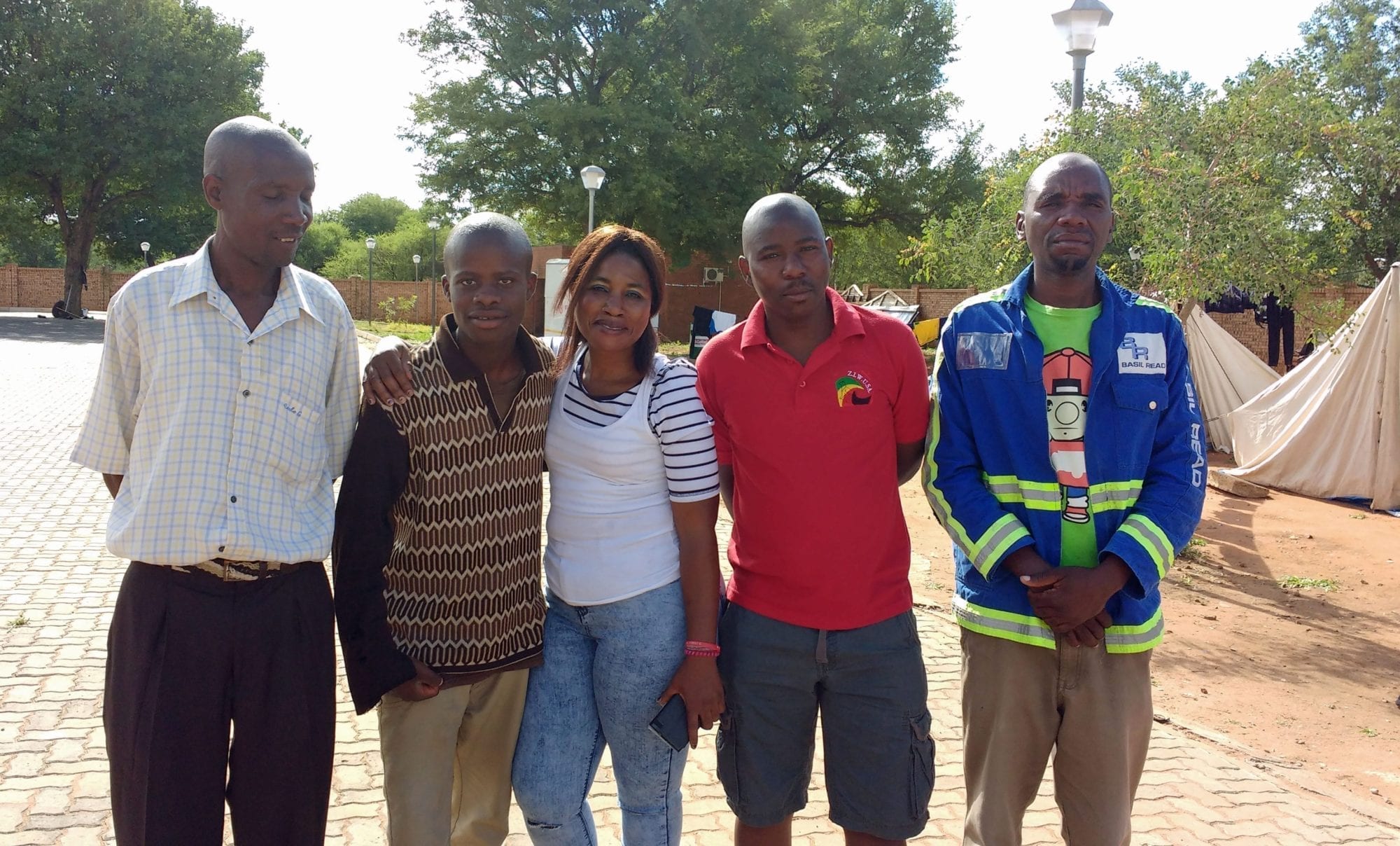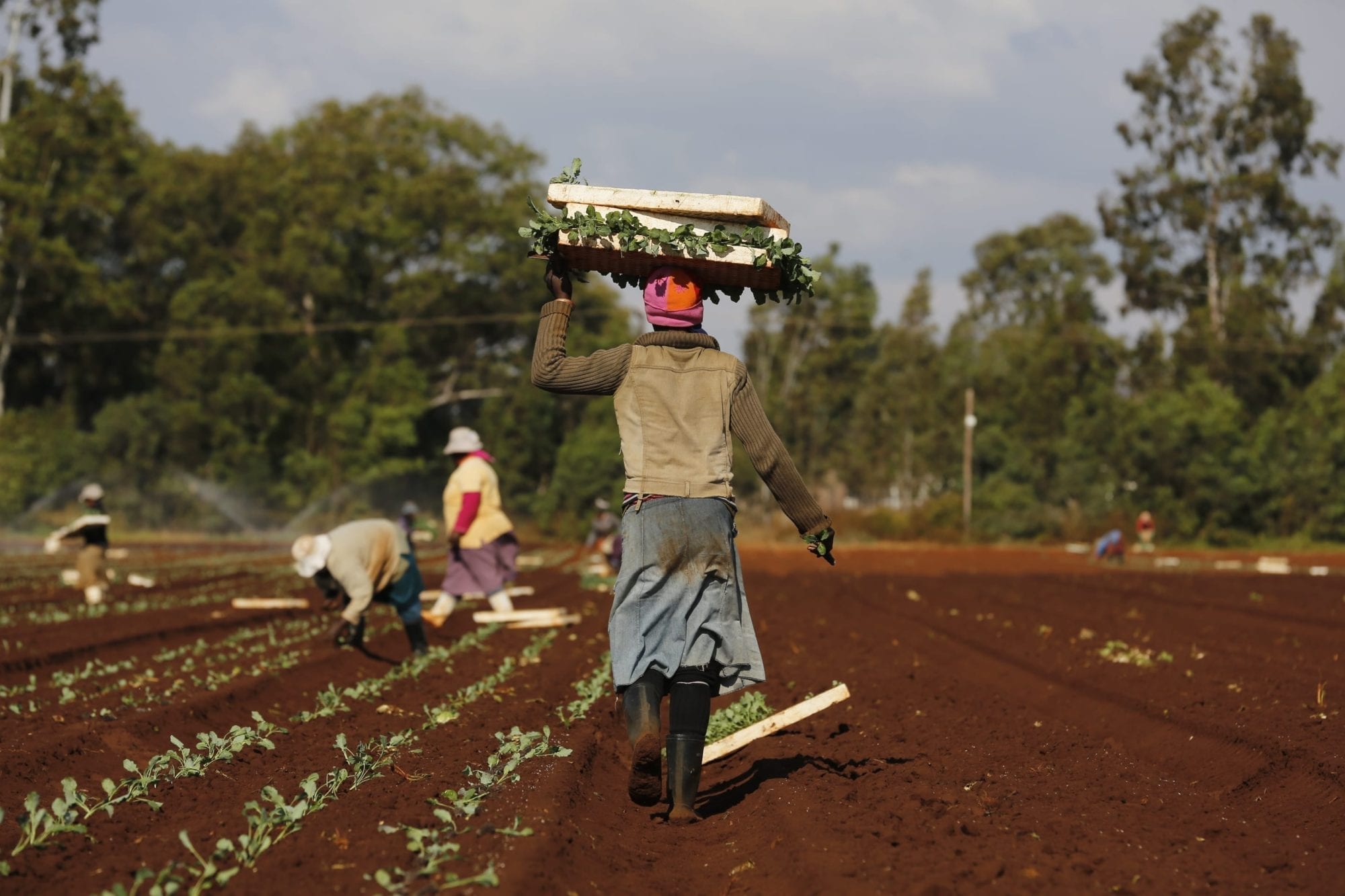Seventeen years ago, Chris Muwani migrated from Zimbabwe to South Africa, where he works on a tomato farm. If he does not fulfill his daily quota, he is not paid for the day. So to complete his workload, he often does not walk the long distance to access the toilet or...

The Solidarity Center program in South Africa aims to improve the lives of working people, particularly the most vulnerable—farm workers, domestic workers, migrant workers and women workers. Credit: COSATU
In South Africa, the Solidarity Center aims to improve the lives of working people, particularly the most vulnerable—farm workers, domestic workers, migrant workers and women workers—who face long-standing barriers to sharing the country’s economic prosperity.
The Solidarity Center works closely with the 2 million-member Congress of South African Trade Unions (COSATU) and the Federation of South Africa Trade Unions (FEDUSA).
With its union and worker organization partners, the Solidarity Center conducts gender equality training to help counter gender-based violence and harassment at work and enable workers, especially women workers, achieve their rights to maternity protection and workplaces free of sexual harassment and other forms of gender-based violence.
To help build stronger legal and social representation for the more than 1 million domestic workers in South Africa, the Solidarity Center works with the South African Domestic Service and Allied Workers Union (SADSAWU). The Solidarity Center helps SADSAWU improve its organizing outreach and holds exchanges between SADSAWU and U.S. domestic workers’ organizations.
Working with the Food and Allied Workers Union (FAWU), the Solidarity Center bolsters the union’s efforts to represent and assist migrant farm workers, whose jobs involve long hours, low pay and little room to assert their workplace rights.
‘Fair Migration’ Conference to Address Worker Exploitation
Edias was 12 years old when he traveled from Zimbabwe to South Africa to look for a job in agriculture. Now in his mid-twenties, he and other farm workers had been working 12 hour days, 7 days a week, and paid less than half the legal minimum wage when they asked the...
Fruits of Labor: Agricultural Workers Feeding the World
From vegetable farms in South Africa to palm oil plantations in Peru and olive groves in Morocco, agricultural workers, their unions and associations are joining with the Solidarity Center in improving wages and working conditions and bettering the lives of themselves...



